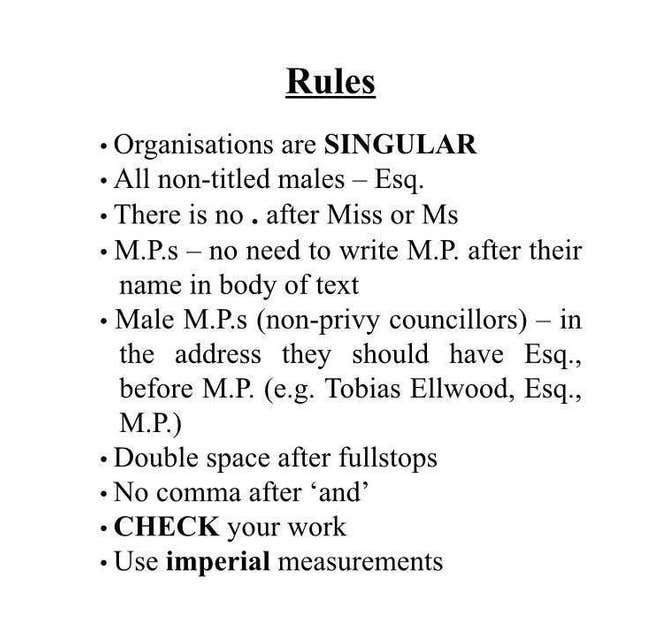Over the weekend, it emerged that Jacob Rees-Mogg, the new Leader of the House of Commons, has issued a style guide to his office HQ staff, which has since garnered much media attention.
On the surface, perhaps, having a style guide doesn’t seem like the strangest idea (although you might think that he has the more lofty matter of Brexit to focus on right now). In fact, he does make a few good points. Avoid verbosity (words such as ‘ascertain’ and jargon like ‘fit for purpose’), and check your work – nothing wrong in that, you might say.

But then the guidelines start to stray into some very odd territory. First of all, he states that MPs’ names should always be followed by ‘esquire’ (such as John Glen Esquire).
Even more perplexing, imperial measurements should be used at all times. Didn’t the UK turn metric back in the 1970s? Did Mr Rees-Mogg not get the memo?
There’s a reason why this old Etonian is dubbed the ‘Honourable member for the eighteenth century’.
The problem is that this style guide is rooted in the past – using outdated terminology and elitist terms designed only to intimidate and alienate the reader. What impression will that leave a voter if he or she receives a letter from ‘Mr John Glen Esquire’? It’s all so old-fashioned.
And Mr Rees-Mogg obviously hasn’t checked the Government’s own style guide which states that ‘you should always use language your audience will understand’.
It goes on: ‘Write conversationally – picture your audience and write as if you were talking to them one to one’. And that, in a nutshell, is the key to all good communications (written or oral). Connect with your audience using straightforward, plain language.
The language of elitism
But of course, Mr Rees-Mogg’s new boss, PM Boris Johnson, is also well known for his use of elitist language – often drawing on classical literature and analogies to make a point. Here’s a man who once boasted that he could recite from heart the first 100 lines of Homer’s Illiad in ancient Greek.

Johnston is considered, by some, to be one of the most entertaining political speakers of his generation. He honed his verbal flamboyance in the debating societies of Eton and later Oxford University, cultivating his image as a bumbling toff straight out of a P G Woodhouse novel. And he has continued to build on this during his career, often with some controversy.
On occasion, Johnston’s language has even strayed into British imperial anachronisms – referring to ‘piccaninnies’ in the Commonwealth and describing Muslim women in burkas as looking ‘like letter boxes’. The latter comment ironically got him voted off the Board of Classics for All – a charity that seeks to promote the teaching of Greek and Latin literature in state schools.
Even in his less inflammatory moments, Johnston uses elitist, classical language to try to gain authority over his audience. Language exists to be manipulated to gain power over his adversaries.
While some find Johnston’s oratory style humorous and powerful, it remains to be seen whether his archaic style will chime with the electorate at large. But it certainly won’t help the Tories to change the perception of the party as elitist and out of touch with reality.
If you enjoyed reading this blog, you might be interested in my blog, ‘Stay at home: getting the message across loud and clear’, about the COVID crisis.



